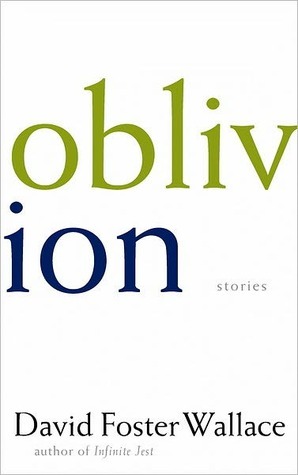More on this book
Community
Kindle Notes & Highlights
that he felt somewhat sullied and implicated by the whole enterprise of contemporary marketing and that this sometimes manifested via projection as the feeling that people he was just trying to talk as candidly as possible to always believed he was making a sales pitch or trying to manipulate them in some way, as if merely being employed, however ephemerally, in the great grinding US marketing machine had somehow colored his whole being and that something essentially shifty or pleading in his expression now always seemed inherently false or manipulative and turned people off,
For it is true that the most vivid and enduring occurrences in our lives are often those that occur at the periphery of our awareness.
In testing, many schoolchildren labeled as hyperactive or deficient in attention are observed to be not so much unable to pay attention as to have difficulty exercising control or choice over what it is they pay attention to.
The fraudulence paradox was that the more time and effort you put into trying to appear impressive or attractive to other people, the less impressive or attractive you felt inside—you were a fraud. And the more of a fraud you felt like, the harder you tried to convey an impressive or likable image of yourself so that other people wouldn’t find out what a hollow, fraudulent person you really were.
This is another paradox, that many of the most important impressions and thoughts in a person’s life are ones that flash through your head so fast that fast isn’t even the right word, they seem totally different from or outside of the regular sequential clock time we all live by, and they have so little relation to the sort of linear, one-word-after-another-word English we all communicate with each other with that it could easily take a whole lifetime just to spell out the contents of one split-second’s flash of thoughts and connections, etc.—and yet we all seem to go around trying to use
...more
Words and chronological time create all these total misunderstandings of what’s really going on at the most basic level. And yet at the same time English is all we have to try to understand it and try to form anything larger or more meaningful and true with anybody else, which is yet another paradox.
realizing that from this perspective my own basic problem was that at an early age I’d somehow chosen to cast my lot with my life’s drama’s supposed audience instead of with the drama itself,
I’ve never once passed under 4 here without seeming to be the only thing on either road. The corn high and the fields like a green ocean all around, insects the only real noise. Driving alone under creamy stars and a little cocked scythe of moon, etc.
That it’s what makes room for the universes inside you, all the endless inbent fractals of connection and symphonies of different voices, the infinities you can never show another soul. And you think it makes you a fraud, the tiny fraction anyone else ever sees? Of course you’re a fraud, of course what people see is never you. And of course you know this, and of course you try to manage what part they see if you know it’s only a part. Who wouldn’t? It’s called free will, Sherlock. But at the same time it’s why it feels so good to break down and cry in front of others, or to laugh, or speak in
...more
Verily a fair-haired, fast-track guy, whom in the very best human tradition David Wallace had back then imagined as happy and unreflective and wholly unhaunted by voices telling him that there was something deeply wrong with him that wasn’t wrong with anybody else and that he had to spend all of his time and energy trying to figure out what to do and say in order to impersonate an even marginally normal or acceptable U.S. male,
Mrs. Amber Moltke, the artist’s young spouse, wore a great billowing pastel housedress and flattened espadrilles and was, for better or worse, the sexiest morbidly obese woman Atwater had ever seen. Eastern Indiana was not short on big pretty girls, but this was less a person than a vista, a quarter ton of sheer Midwest pulchritude, and Atwater had already filled several narrow pages of his notebook with descriptions and analogies and abstract encomia to Mrs. Moltke, none of which could be used in the compressed piece he was even then conceiving how to pitch and submit.
‘You know, did anybody when they were little ever have this thing where you think of your shit as sort of like your baby and sometimes want to hold it and talk to it and almost cry or feel guilty about flushing it and dream sometimes of your shit in a little sort of little stroller with a bonnet and bottle and still sometimes in the bathroom look at it and give a little wave like, bye bye, as it goes down, and then feel a void?’
The conflict between the subjective centrality of our own lives versus our awareness of its objective insignificance.
He felt the distinctive blend of repulsion and fascination nearly all people feel when examining a diseased or injured part of themselves.


